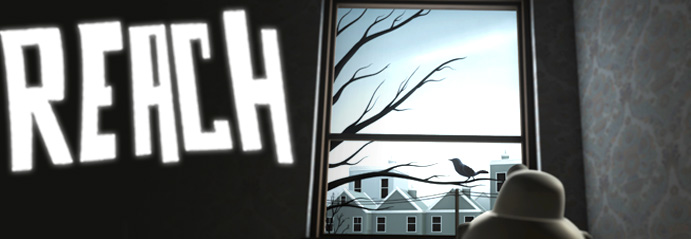
|
|
|
|
|
|

|
|
|
|

|
|
|
|
|
|
|
|
Animation Mentor: How did you come up with the concept for your short film?
Luke Randall: Animation Mentor: What important lessons did you learn from making your short film?
Luke Randall: Also, I definitely learned not to be too protective of my work. Showing work early and getting feedback often saves you so much energy going down roads that are not going to work. You don't have to take every piece of advice you get, but when you hit a wall or feel like something isn't working, it's amazing how quickly you can get back on track and move forward with some fresh eyes. Animation Mentor: What was the best piece of advice you received from your mentor or your peers?
Luke Randall:
Animation Mentor: What were the steps you took in your planning process?
Luke Randall: All the way through I would be acting shots out, creating video reference for different shots or new drawings for the animatic. It was a pretty fun and organic process with a lot of back and forth because a drawing or video reference often inspired a new idea. I was constantly adding new shots, re-arranging shot orders, shot lengths and changing compositions of shots, right through to end of production. Animation Mentor: Do you mind sharing some of the pre-production work with us with a little explanation of what we're looking at? Luke Randall: So here is my animatic, please feel free to scoff at my crude drawing skills. During the process of putting together this animatic, I found a lot of holes and inconsistencies in my storyboards came to the surface, but it was actually a lot of fun reworking things at this stage because the feedback is so immediate, if you need a new shot you just do a couple of drawings. You can almost see how your whole film will play out, but that said there are some major differences between my animatic and the final film, the biggest being that the final film turned out to be about three times longer! Rough Pass: Animation Mentor: What obstacles, if any, did you experience during the creation of your short film? How did you work your way around them?
Luke Randall: To get the visual look of the film right I really just had to keep tweaking the lighting, texturing and shaders, it definitely took a long time for the renders to come together. I used mental ray for rendering and I was lucky enough to have already picked up the basics; I learned the rest as I went through trial and error, tutorials and help from a couple of friends who were kind enough to answer my constant questions. Being able to download free auto-rigging tools and scripts for Maya was also vital, without them I wouldn't have been able to create and animate my own character. Animation Mentor: How did Animation Mentor help you create your short film?
Luke Randall: Finishing an animated short by yourself is really difficult, but doing it through Animation Mentor puts you at a great advantage to succeed. You are supported throughout the process with a curriculum that outlines how to plan and execute your ideas. In addition you get a ton of guidance from your mentors and other students that really helps you stay on course. Animation Mentor: What advice do you have for other students who haven't started their short film yet?
Luke Randall: |
|
Copyright © AnimationMentor.com ® All Rights Reserved